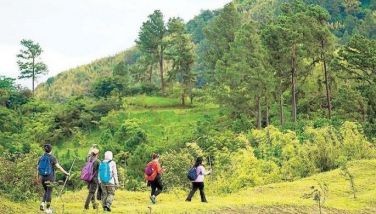British Columbia ready to support refugees

The province of British Columbia will receive three times its yearly quota of refugees in the space of a few weeks. The funds to support government-assisted refugees come from the federal government with major components.
The Settlement Program – It funds programs for all immigrants to Canada, including refugees. It pays for language training, information and orientation programs and employment-related services.
The Resettlement Assistance Program – It provides direct income support to government-assisted refugees for one year at a rate comparable to provincial welfare. This would include temporary accommodation, help finding a permanent place to live, interpreting services, translation and orientation.
Immigration, Refugees and Citizenship Canada funds two British Columbia organizations to administer programs under the Resettlement Assistance Program. The Immigrant Services Society of BC operates Welcome House. It is the first home for all government-assisted refugees who settle in the province. Then, there is SUCCESS, an organization to guide newly arrived refugees through the landing process. They also provide information and orientation in multiple languages on the settlement process in Canada.
Thousands of Metro Vancouver residents are ready to volunteer when the federal government announces final plans how to resettle 25,000 Syrian refugees between 2015 and 2016. While specific resettlement details are not yet known, the government-assisted refugees could arrive in Canada as early as Dec. 1. They may spend a few weeks in Toronto and Montreal before moving to British Columbia where the most pressing need is housing.
All the refugees will be screened for security reasons and health issues before they board planes headed for Canada. And the most vulnerable groups, including women and children, families and LGBTQ populations will get priority. Security concerns over extremists potentially slipping in to the country mean the government will likely exclude unaccompanied males from its planned acceptance of 25,000 refugees by Dec. 31.
Housing will be an issue but the biggest barrier is language. Another major challenge is how to provide mental health care for refugees with mental trauma due to their suffering caused by the four-year-old civil war. The most common would be post-traumatic stress disorder. These are people who have witnessed war, murders and sexual assaults and many of them are children.
Canadians shopping online more popular
Vancity Credit Union reported that online shopping is fast becoming the new way for buyers to browse, but many stores across the country are not keeping up and are losing customers to foreign retailers.
Stores in Metro Vancouver are predicted to lose an estimated $1.6 billion in retail in 2015, with the money being diverted instead to foreign online retailers. And independent Canadian retailers have a poor online presence.
Last year’s shopping season showed that 68% of British Columbians opted to skip store lineups and the trouble of finding parking (limited parking space and higher parking fees). Instead, people shop online instead of going shopping for their holiday gifts.
Forecasts for total Canadian online sales for this year vary between $23.5 billion and almost $30 billion.
Canadian airlines doing good business
According to Maclean’s, both Air Canada and Westjet declared record quarterly income last week, thanks largely to the reduced price of jet fuel, and the outlook for the industry as a whole has rarely been better. Annual pre-tax profits are expected to reach $1.3 billion in 2015, about double their level from two years ago.
The proportion of empty seats on planes remains low (23% for WestJet and 15% for Air Canada). A lot of people are wondering why they are still paying fuel surcharge when the oil prices are done and airline revenues are up.
- Latest
- Trending





























